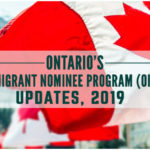
Applicants Denied Entry to Canada Will Now Receive More Detailed Explanations
In a welcome move to improve transparency and communication, Immigration, Refugees and Citizenship Canada (IRCC) now provides detailed feedback to applicants whose requests to work, study, or visit Canada are denied.
Since July 29, 2025, IRCC has included officer decision notes directly with refusal letters for eligible cases.
This initiative helps individuals clearly understand why their application was rejected—straight from the reviewing officer—without needing to file a separate request.
Who Will Receive These Officer Decision Notes?
At present, IRCC adds officer comments only to refusals for temporary resident applications, which include:- Temporary Resident Visas (TRVs), excluding eTAs and TRPs
- Visitor records
- Study permits
- Work permits
How Does IRCC Deliver Officer Notes?
If IRCC refuses your application and it falls under the eligible categories, they will include the officer’s reasoning along with the refusal letter. Applicants don’t need to make any special requests. However, IRCC may remove certain parts of the notes when necessary to protect privacy, security, or other sensitive issues. Applicants or their authorized immigration representatives receive both the refusal letter and the decision notes.Want More In-Depth Information? Request GCMS Notes
If you want to explore your application file in more detail, you can request Global Case Management System (GCMS) notes. These internal records offer comprehensive insights, including:- Application progress and status updates
- Officer remarks and internal communications
- Relevant file documentation
Who Can Request GCMS Notes?
The following individuals may request GCMS notes:- Canadian citizens
- Permanent residents
- People physically present in Canada
When Should You Request GCMS Notes?
You can submit your GCMS request once your application clears the R-10 completeness check, which confirms that all documents are in place. Although you can request them earlier, it’s often better to wait until IRCC has started processing your application for more detailed results. Many applicants choose to request GCMS notes after receiving a final decision.How to Request GCMS Notes
Step 1: Gather essential application details
Include your full name, date of birth, UCI, application number, and contact information.Step 2: Submit an ATIP request
You can apply online through IRCC’s ATIP portal or mail your request (through a Canadian representative if you are abroad).Step 3: Pay the $5 processing fee
Make your payment online or by cheque/money order if applying by mail.Final Thoughts:
IRCC’s decision to share officer notes represents a major stride in creating a more transparent and accountable immigration system. Applicants now gain clearer feedback about refusals, allowing them to make informed choices for future applications.If you’ve received a refusal and want to understand what went wrong, speaking with a licensed immigration consultant can help you move forward with confidence.





